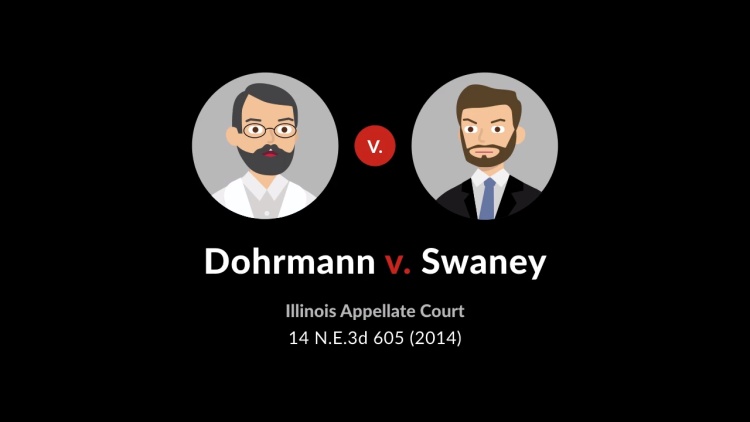Dohrmann v. Swaney
Court of Appeals of Illinois
14 N.E.3d 605 (2014)
- Written by Craig Conway, LLM
Facts
George Dohrmann III (plaintiff), a 40-year-old married physician with two sons, befriended a wealthy 73-year-old widow, Virginia Rogers, who had no children or immediate family and lived in the same apartment building. Dohrmann consulted an estate-planning attorney regarding how to create an agreement whereby Dohrmann could receive something of value from Rogers in exchange for services rendered. The attorney provided Dohrmann with a skeleton agreement, which Dohrmann subsequently modified. The resulting contract provided that Dohrmann would receive Rogers’s cash, apartment, and personal property, totaling nearly $5.5 million, in exchange for Dohrmann incorporating Rogers’s surname into the name of Dohrmann’s two sons, as Rogers wanted her surname to continue after her death. However, Dohrmann only used Rogers’s surname as an additional middle name for each son. Rogers was 89 years old at the time of the execution of the agreement and was diagnosed with Alzheimer’s disease two years after signing the agreement. No witnesses were present at the signing of the contract, and Rogers did not consult her long-time attorney, Thomas Swaney (defendant), regarding the terms of the agreement. Prior to her death, Rogers transferred ownership of her apartment to a trust. After Rogers’s death, Dohrmann filed a five-count complaint against Swaney, the executor of Rogers’s estate, seeking a declaratory judgment that the executed agreement was valid and enforceable and that Rogers’s transfer of her apartment into the trust was void. Swaney filed a counterclaim, alleging fraud and asking that the executed agreement be declared invalid and unenforceable. The trial court granted summary judgment in favor of Swaney. Dohrmann appealed.
Rule of Law
Issue
Holding and Reasoning (Smith, J.)
What to do next…
Here's why 907,000 law students have relied on our case briefs:
- Written by law professors and practitioners, not other law students. 47,100 briefs, keyed to 996 casebooks. Top-notch customer support.
- The right amount of information, includes the facts, issues, rule of law, holding and reasoning, and any concurrences and dissents.
- Access in your classes, works on your mobile and tablet. Massive library of related video lessons and high quality multiple-choice questions.
- Easy to use, uniform format for every case brief. Written in plain English, not in legalese. Our briefs summarize and simplify; they don’t just repeat the court’s language.





